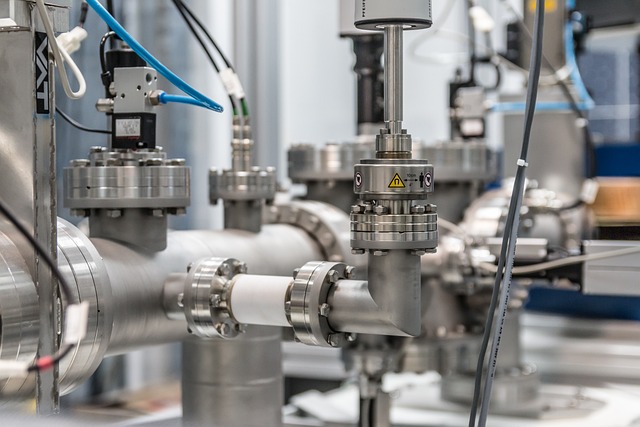Pipe repairs are essential for addressing common plumbing issues like leaks, clogs, and bursts caused by corrosion, wear, temperature changes, or tree roots. Preventive measures include regular maintenance, protective coatings, and avoiding grease disposal. Hiring local experts offers advantages such as compliance with codes, tailored solutions, swift response, and exceptional service. Distinguish between emergency (burst pipes, sudden leaks) and scheduled repairs (proactive maintenance). Modern innovations like relining and coating technologies offer efficient, minimally invasive solutions. Selecting high-quality materials and using recommended adhesives enhances repair longevity. Regular maintenance, including inspections, insulation, and drain care, prevents costly repairs. Adhering to local regulations and safety standards is crucial for DIYers and contractors. Local pipe repair services are vital for community resilience during emergencies.
Looking for reliable pipe repair services? Whether it’s a leaky faucet or a burst pipe, understanding common issues and their causes is the first step. This article explores various aspects of local pipe repair, from identifying problem areas to choosing the right materials and preventative care tips. We weigh the benefits of hiring experts, evaluate emergency vs. scheduled repairs, and delve into modern techniques while considering legal and safety factors. Discover how local businesses contribute to community resilience through top-notch pipe repair services.
Understanding Common Pipe Issues and Their Causes
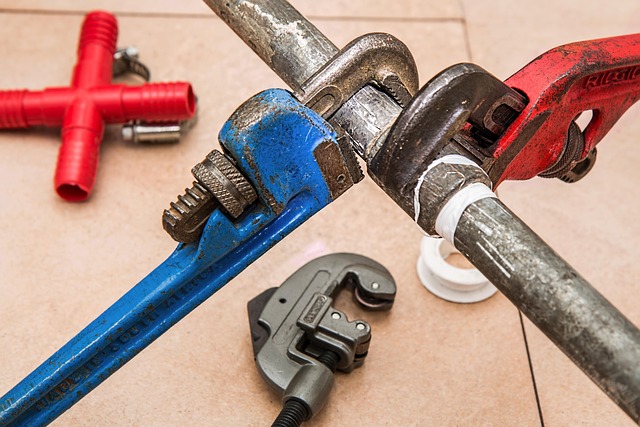
Pipe repairs are often necessary due to a range of common issues that can arise in plumbing systems. Understanding these problems and their causes is an essential first step for homeowners and businesses alike. Leaks, for instance, can be caused by corroded joints, worn-out pipes, or faulty fittings, leading to wastage of water and potential damage to properties. Similarly, clogs are prevalent issues stemming from buildup of debris, grease, or tree roots intruding into pipes.
Another frequent problem is pipe burst, typically occurring due to extreme temperature changes or aging pipes. This can cause significant water damage and necessitate emergency pipe repair. Preventive measures like regular maintenance checks, using protective coatings on pipes, and avoiding feeding cooking oil down the drain can help mitigate these issues.
Benefits of Hiring Local Pipe Repair Experts
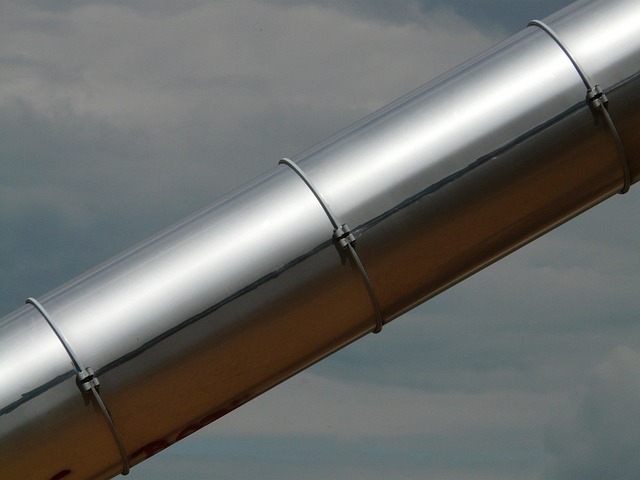
Hiring local pipe repair experts comes with a plethora of benefits that extend beyond just fixing leaky pipes. Firstly, they possess in-depth knowledge of local plumbing codes and regulations, ensuring any repairs comply with legal requirements. This reduces potential future issues and saves you from costly fines. Local pros also understand the unique challenges posed by your region’s climate and water pressure, allowing them to provide tailored solutions that endure.
Moreover, engaging a nearby pipe repair service boosts convenience and responsiveness. They’re often just around the corner, able to swiftly respond to emergencies like burst pipes or low water pressure. What’s more, these experts tend to be highly customer-focused, offering transparent pricing, punctual arrivals, and excellent communication throughout the repair process, ensuring you stay informed every step of the way.
Evaluating Emergency vs. Scheduled Repairs
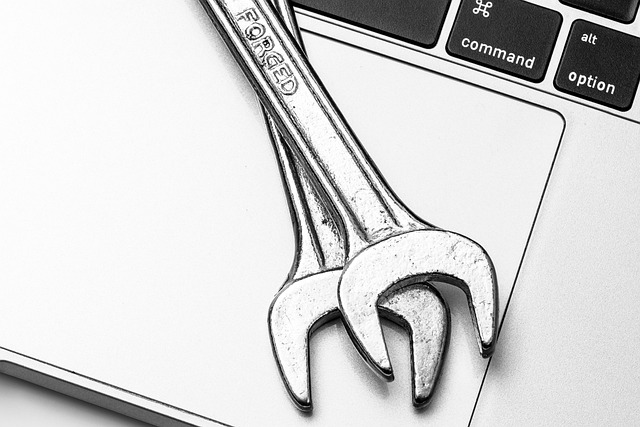
When it comes to pipe repairs, differentiating between emergency and scheduled maintenance is crucial. Emergency repairs are often prompted by sudden issues like burst pipes, leaks that have escalated, or clogs that have blocked water flow entirely. These situations demand immediate attention to prevent further damage, water waste, and potential health hazards.
Scheduled pipe repairs, on the other hand, involve proactive maintenance to prevent such emergencies from occurring. Regular checks and repairs can extend the lifespan of pipes by addressing issues like corrosion, wear and tear, or minor leaks before they become major problems. This approach is particularly beneficial for older plumbing systems or buildings with complex pipe networks.
Modern Techniques in Pipe Repair and Maintenance
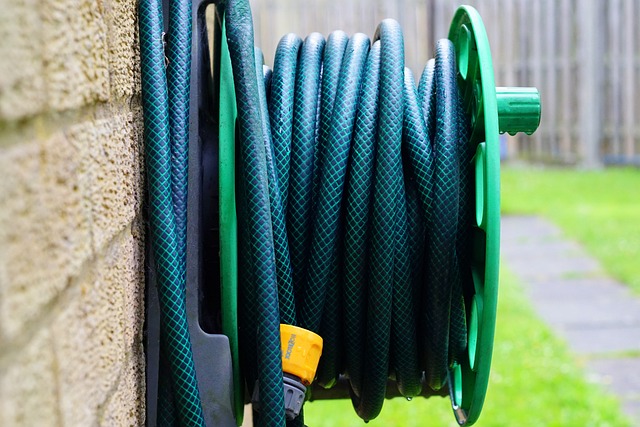
In the realm of pipe repair, modern techniques have revolutionized the way professionals address leaks and damages. Gone are the days of traditional methods that often involved extensive excavation and lengthy downtime. Today, innovative approaches such as relining and coating technologies offer effective solutions with minimal disruption to properties and daily operations. These cutting-edge methods not only ensure long-lasting repairs but also enhance the overall lifespan of pipes.
Relining involves inserting a new pipe within the existing one, effectively creating a smooth, seamless structure. Coating applications, on the other hand, provide an extra layer of protection against corrosion and wear. Both techniques are particularly beneficial for local businesses and residents as they require less excavation, reduce costs, and minimize inconvenience. By embracing these modern practices, local pipe repair services contribute to a more efficient, sustainable, and cost-effective maintenance landscape.
Choosing the Right Materials for Long-Lasting Fixes
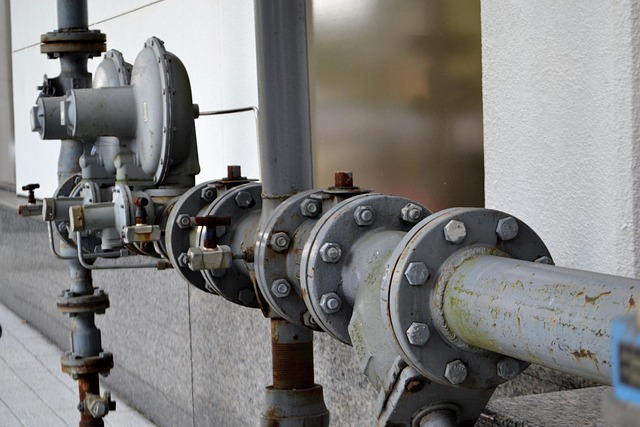
When it comes to pipe repair, selecting the right materials is a key step in ensuring long-lasting fixes. It’s essential to choose products that are compatible with the type of pipes you’re working on and resistant to corrosion and other environmental factors. High-quality PVC, copper, or steel fittings, for instance, offer durability and strength for various pipe repair jobs. These materials are designed to withstand pressure and temperature fluctuations, making them ideal choices for both residential and commercial applications.
For effective and lasting results, consider using specialized adhesives and coatings recommended for specific pipe materials. These products create a strong bond, preventing leaks and extending the life of your repairs. By investing in top-tier materials, you can rest assured that your pipe repair projects will be more reliable and less prone to future damage, ultimately saving you time and money in the long run.
Tips for Preventative Care to Avoid Frequent Repairs
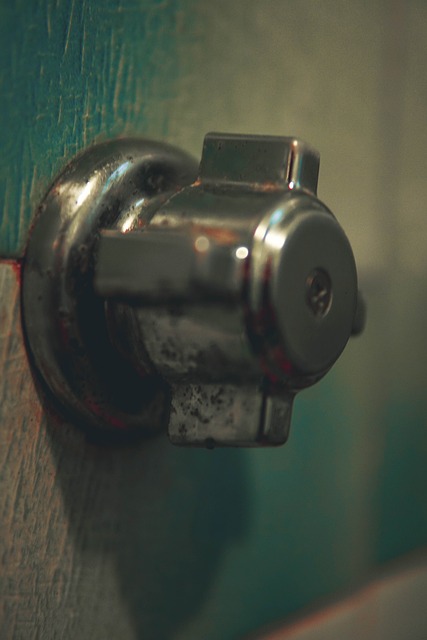
Regular maintenance is key to avoiding frequent pipe repairs. Start by inspecting your pipes for any signs of damage, corrosion, or leaks on a monthly basis. Simple tasks like checking for water pressure issues, clearing drain traps, and sealing joints can go a long way in preventing clogs and bursts.
Consider implementing a preventative care routine including insulating pipes in colder months to prevent freezing, using drain covers to catch hair and debris, and avoiding pouring grease or hot fats down the sink. By taking these proactive measures, you’ll reduce the risk of costly and inconvenient pipe repairs.
Legal and Safety Considerations for Homeowners and Contractors

When it comes to pipe repair, whether for homeowners or contractors, there are crucial legal and safety considerations to keep in mind. As with any construction work, local regulations and permits may be required before beginning any pipe repair projects, especially if the work involves buried or complex plumbing systems. Failure to comply with these rules can result in fines or even project delays.
Safety is paramount, particularly for homeowners attempting DIY repairs. Using the right tools, wearing protective gear, and following manufacturer guidelines are essential to prevent accidents. For contractors, staying updated on industry standards, ensuring worker safety, and obtaining necessary certifications (especially for gas or chemical piping) are critical to avoid potential hazards and legal complications.
The Impact of Local Businesses on Community Resilience
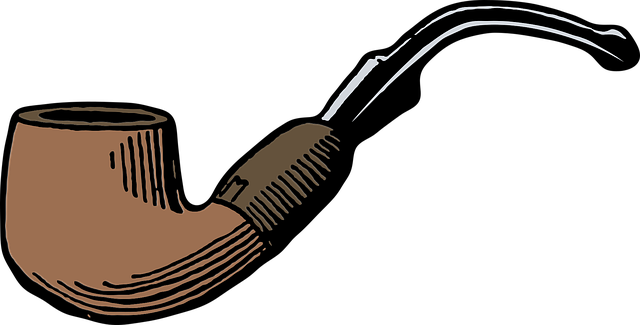
Local pipe repair services play a vital role in fostering community resilience, especially during unforeseen circumstances such as natural disasters or infrastructure failures. When a pipeline breaks or clogs, swift action from local businesses ensures that essential resources like water and sanitation remain accessible to residents. This prompt response not only mitigates the impact of disruptions but also helps maintain order and safety within the community.
Moreover, relying on locally-based pipe repair professionals contributes to the overall economic stability of the region. These businesses employ local workers, stimulate the circulation of funds within the community, and often offer personalized services tailored to the specific needs of their neighbors. This sense of shared responsibility strengthens the bonds between residents and service providers, creating a more resilient and cohesive society.
